Labelexpo India 2010: At a Glance
It was a good rounding up to the year. The Labelexpo which took place from 8 to 11 December at Pragati Maidan, New Delhi can be rated as solid success.
29 Dec 2010 | By Samir Lukka
The breaking news is: major industry players such as Gallus, HP, Mark Andy, Nilpeter, Omet, Kodak, Rototek and Xeikon have already booked more space and upgraded their stalls for Labelexpo India 2012.
Indian label machine manufacturers, such as Holostik India, Kaygee Loparex, Kurz India, SMI Coated Products, Jesons, MLM, Weldon Celloplast and BST Sayona Automation showcased their technologies.
One of PrintWeek India’s favourite stalls was: Multitec which ran a number of demonstrations on the fully UV loaded eight-colour Ecoflex press (a press which has seen more than 20 installations). Amit Ahuja, director of the firm which manufactures the machines on a six-acre plot in Faridabad is seeking advancements. Already, the company has phased-out the low-grade Chinese rollers from the Ecoflex and opted for superior rollers.
Also, Jandu Engineering Works and ApexRotoTech Industries, which are both label manufacturers in India, reported busy stalls. ApexRotoTech demonstrated a six-colour flexo press, the APDM-63-260 which was loaded with six printing towers and three die-cut towers, along with web monitor and UV drier. Further features included closed loop dancer tension controller and edge guide.
The show achieved its primary role of being the showcase for the label industry in India and the platform for the industry to grow. Many international exhibitors chose Labelexpo India to launch their new products including:
The highlights:
- Omet highlighted its Flexy and Flexy-S model ranges which are designed to offer simplicity and ease of use to label converters
- Xeikon introduced the Xeikon 3000 Series; and HP showcased the ws4500. HP reported the recent sale of a ws6000 to flexible packaging giant, Essel Propack. This makes it a total of 15 HP industrial presses in India.
- Gerhardt unveiled the High Blade Flexi which was one of seven new flexi die innovations by the company
- BST Sayona Automation developed a range of narrow web inspection slitter and rewinder by the brand name Perfecto. The Perfecto LabelSpect slitter/ rewinder has been complemented with the Shark 4000 LEX, 100% defect detection system. The who’s who among Indian label converters have recognised BST Sayona’s capability. This includes: A & A labels, Interlabels, Shree Ganesh Graphics, Gujarat Print Pack, R A Labels among others.
- Industry veteran, Harveer Sahni, managing director, Weldon Celloplast said: "As visitors entered the show, the good vibes were evident. The show has attained the international quality that Labelexpo is known for. Visitor quality was superb and euphoria prevailed!"
- Ilkka Ylipoti, senior vice president of UPM Raflatac Asia-Pacific, delivered a key-note address at Labelexpo. During his talk he said Indian converters consume only 250 million sq/metres of premium PS label stock. In his talk, globalisation and opportunities in a growth market, Ylipoti said that despite the growth of the Indian label market, there is still a small base of converters who consume high value film. He pointed out that Vietnam has a higher percentage of filmic PS use than India. Ylipoti stated this could be because of restrictions on global retail groups. Today food accounts for 2% of PS consumption in India as against 30% in Europe; while pharma accounts for most of the PS labels consumed. Yet, per capita average is very low at 0.2 sq/metres.
A glance at some of the exhibitors at Labelexpo
Printax Flexofab a 10 year old company caters to the needs of the photopolymer plate-making industry in India. "We participated in the show with an aim to penetrate the North India market, and the show met our expectations," said S Narayan, chief executive of the company which has a plate-making unit. Flexofab works closely with Printax, a distributor of DuPont, Cyrel plates in India. During the show, it laid great stress on plate making techniques to produce good quality plates. Flexofab has close to 100 installations in India and abroad. The company offers a range of equipment to suit from stamp-making, through labels and packaging to large corrugation print requirements. They export to Nigeria, Iran, UAE, Sri Lanka.
Tesa Tapes is a 75 year old company with Indian presence since the last 14 years. Kishore Nawar, market manager at Tesa Tapes said, "Though the footfall at the show was low, it brought in quality customers." At the show, Tesa introduced a strip solution which can help measure the UV dosage. The company specialises in web process and has 50% market share in the Indian label industry.
Great Eastern Impex (GEI) started its operation in 1983 – and worked with resellers and converters through both direct and indirect channels. So far GEI has more than 2,000 customers in India. A company official informed us that the company exports to Sri Lanka, Bangladesh and Gulf countries. It is one of the largest RFID, barcode labels, tickets (tags) and printing ribbon manufacturer. GEI operates from offices in NCR, Mumbai, Bengaluru, Chennai, Kolkata, Ludhiana, Hyderabad and Pune.
Basawa Tech is a solution provider in the field of software development and barcode technology. It imports barcode equipment. "It was an excellent show, a brilliant meeting place for us to meet all our dealers under one roof," said Hema Soni, senior associate at Baswa Technology. The company is operating since last 13 years and has 800 resellers in India. "More than 85% of our business is handled through dealers," Soni added.
Muhlbauer Group is a German company which was founded in 1981. The group is a one-stop shop technology partner for smart card, ePassport, RFID and solar back-end industry. Additional applications are die sorting, carrier tape as well as flexible solar cells production solutions. Muhlbauer has a 15 year old presence in India and a direct presence since six years. The Group has installed 78 machines and has a customer base of 30 in India.
ETI a Canadian company manufactures kit to print and produce self-adhesive label. "We are looking forward to installing two machines in India in 2011," said Francois Bayzelon chairman and CEO at ETI. The firm offers patented technology for inline silicone and adhesive coating for label printers. Its equipment-range covers an extended part of the label manufacturing process. Improving key operations (printing, adhesive and silicone coating, die-cutting) that impact the productivity of the printer.
Kumbhat Holograms established in 1999 has a capacity to produce 500 million holograms a month at its sprawling manufacturing and research and development unit spread over 72,000 sq/ft. Pankaj Kumar, senior marketing executive – Delhi, told us that they have 50% market share in India.
Apsom Infotex displayed LEC330, a label printing machine for short runs. Gulshan Kumar from Apsom said, "Visitor footfall was good. We displayed prototype label printing machines for short run. Because the short-run market is untouched in the country and no one is thinking about it."
Stic-On Papers is a customised solutions developer for the label and packaging industries. The firm specialises in thermal transfer ribbons and label stock which can be used in traditional thermal transfer printers and the latest designs of near edge or edge head thermal transfer printers. It also manufactures solventless platinum silicon coated release liner and tapes. Stic-On is a 12 year Hyderabad-based company with corporate offices in Mumbai and Chennai. It exports to Middle East, African and SAARC countries. "Our production is done on German machines and technology," said K Karan Reddy managing director at Stic-On.
Prati showcased the Sun TE330 slitter inspection rewinder. Displayed at Reifenhauser India booth and bought by Wintek Flexo Prints, Prati was represented by its distributor Reifenhauser India. Sun TE330 on display is a full servo slitter inspection rewinder. It is the fourth Prati machine bought by Bengaluru-based Wintek Flexo Prints in 18 months. The Sun TE330 enables winding, inspection, slitting and rewinding of a wide range of applications, including pressure sensitive labels, unsupported paper, cardboard and plastic substrates. The high speed kit responds to the needs of the majority of narrow web printers as it can process web widths up to 330 mm. The machine can be integrated with a digital camera, allowing a 100% quality inspection.
Astir India has been manufacturing premium quality lamella doctor blades for Hy-Tech rotogravure and flexographic machines since 1996. "This is our first Labelexpo and we are happy with the response," said Rajan Uniyal, director of Astir India. Astir’s lamella processing facility is certified by one of the world’s leading certification body DNV for ISO 9001:2000 quality standards. "Our blades, metres the ink well and wipes the excess ink which prevents wastage of inks," he said.
Gulton Thermal Printheads specialises in thermal printhead development and production since 30 years. The firm has developed a protective coating that extends the abrasive life of its printheads. Gulton’s corporate office and production facility is based in USA. It manufactures OEM and OEM compatible thermal printheads. The firm caters to barcode, gaming, wagering, lottery, tag ticket, label, transportation, petroleum, financial and automated data collection.
In his talk, globalisation and opportunities in a growth market, Ylipoti said that despite the growth of the Indian label market, there is still a small base of converters who consume high value film. He pointed out that Vietnam has a higher percentage of filmic PS use than India. Ylipoti stated this could be because of restrictions on global retail groups.
Today food accounts for 2% of PS consumption in India as against 30% in Europe; while pharma accounts for most of the PS labels consumed. Yet, per capita average is very low at 0.2 sq/metres.



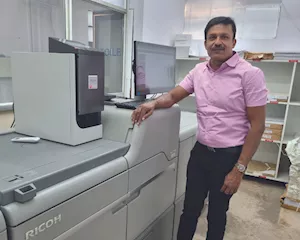
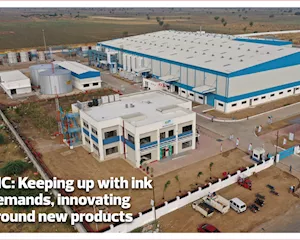
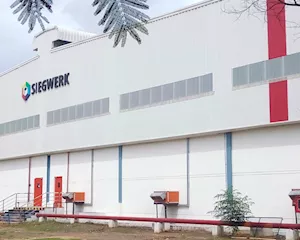
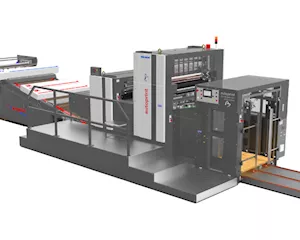
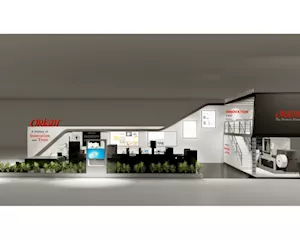






 See All
See All